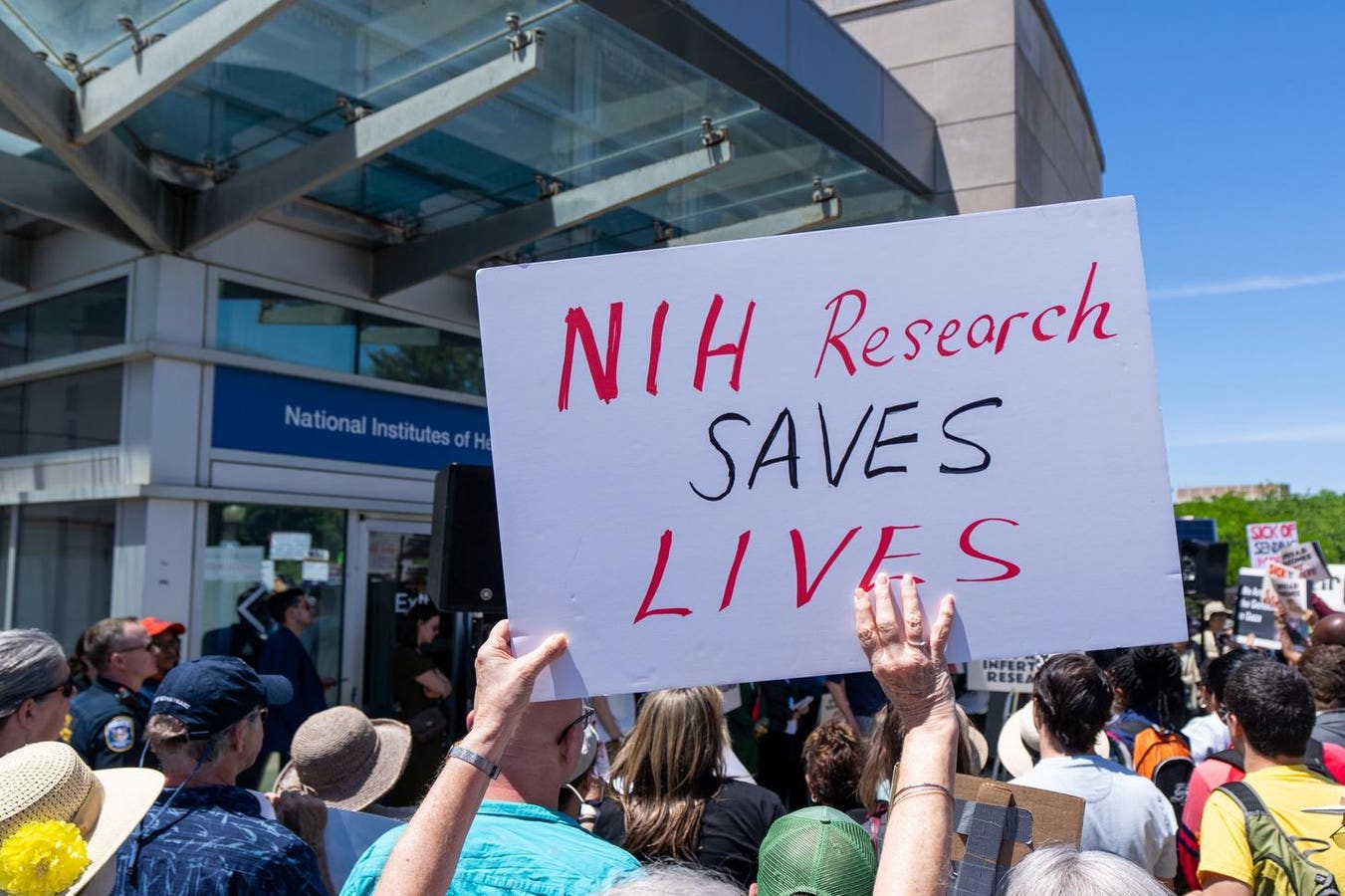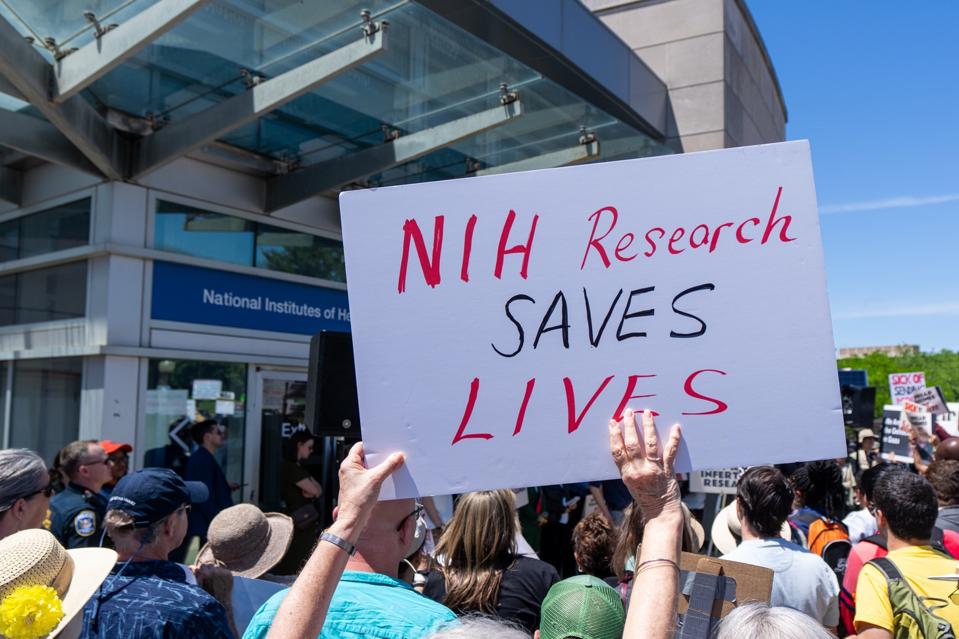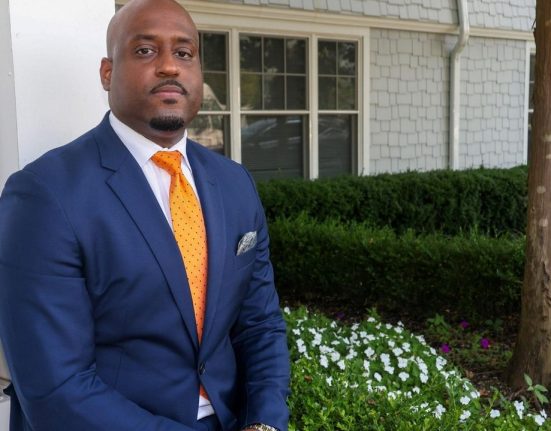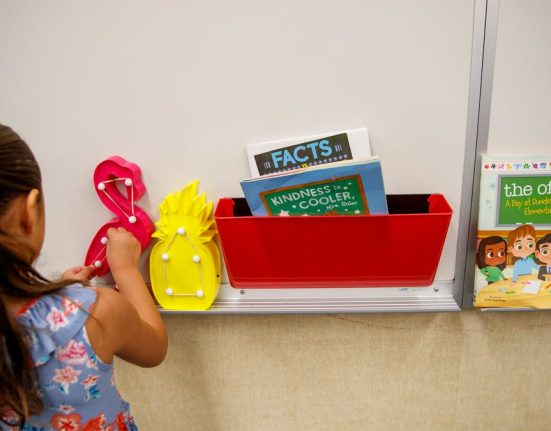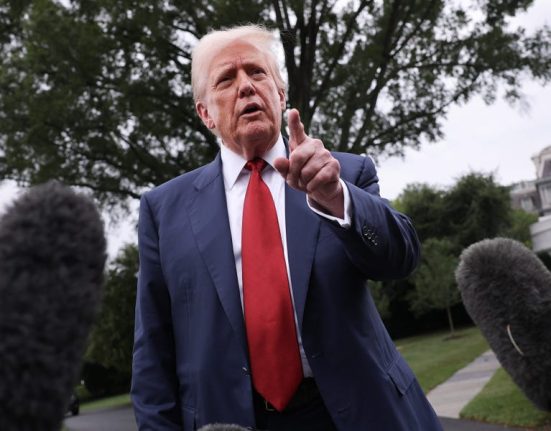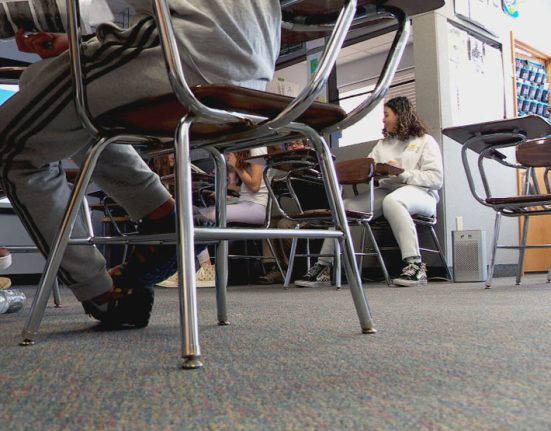UNITED STATES – MAY 10: Activists hold signs during rally outside the National Institutes of Health in Bethesda, Maryland, on Saturday, May 10, 2025. (Bill Clark/CQ-Roll Call, Inc via Getty Images)
CQ-Roll Call, Inc via Getty Images
Twenty-five years ago, I had a life-changing experience. I got the biggest break in my career. My application to do a Ph.D. at the University of California, Berkeley, was accepted, and I was offered funding support through a National Institutes of Health program called the Fogarty AIDS International Training Program. I had little money those days, and without NIH funding and a welcoming professor who cared deeply about global health, I could have never left India for higher education in the United States.
Today, I chair a department of global and public health at a leading Canadian university. The life-changing opportunities I had as a Fogarty trainee at Berkeley allow me to pay it forward by training the next generation of global health leaders.
An Exceptional Return On A Small Investment
I was not the only scholar to benefit from Fogarty funding — nearly 8,500 individuals from 132 countries have trained through Fogarty programs since 1989, and many have become leaders in their countries. Several have led groundbreaking research projects and inspiring programs and institutions.
Soumya Swaminathan is a great example. After her Fogarty training in the United States, she went on to become a leading HIV and TB researcher, become the director-general of the Indian Council of Medical Research, and subsequently the first chief scientist of the World Health Organization. “My Fogarty fellowship gave me an opportunity to get exposed to advanced immunological techniques and meet leading experts at a critical stage of my career. It helped spark new ideas and initiate collaboration with international experts which may not have happened otherwise,” she said.
Another shining example is Glenda Gray, who was the first female president of the South African Medical Research Council. “Becoming a Fogarty Fellow catalysed my career as a clinician scientist, and marked the beginning of my research trajectory,” she said. “It enabled me to make contributions to HIV vaccine research and development, as well as research in the area of preventing mother to child transmission. The interventions we developed have led to the control of paediatric HIV and improvements in treatment that have reduced HIV-related mortality in children,” she explained. Gray is currently director of the Infectious Disease and Oncology Research Institute at the University of the Witwatersrand.
“Fogarty was truly transformative in my career, opening doors I never imagined and providing learning, mentorship, and global connections that shaped my professional path and vision for public and global health,” said Patricia Garcia, former minister of health in Peru, and a professor at Cayetano Heredia University, Lima.
The Fogarty International Center has also benefitted US scientists and institutions. In FY24, FIC funded 440 U.S. grantees from 122 U.S. institutions in 39 states. Research conducted in Global South countries have led to improved treatments for health challenges of importance to Americans.
“The training programs supported by the FIC over the past 40 years have been unparalleled in their reach and impact around the world,” said Arthur Reingold, emeritus professor at Berkeley School of Public Health, who has trained hundreds of scholars through his Fogarty grants. “They have, through their support of highly talented biomedical scientists from scores of low and middle income countries, dramatically improved research and educational capacity globally, as well as markedly enhanced high impact collaborative research on AIDS, tuberculosis, malaria and diverse other communicable and non communicable diseases. The benefits resulting from the enhanced research capabilities of scientists supported by the FIC have accrued to people living everywhere, including in the United States,” he elaborated.
Lucian Davis, an associate professor at Yale Medicine and the Yale School of Public Health, has also used the Fogarty program to train dozens of American and African scholars. “Fogarty enables us to train the world’s brightest minds to tackle America’s leading health priorities — a high-impact, low-cost investment that keeps us connected to the world,” he said.
And guess what, the entire annual budget of the FIC is a merely 0.2% of the total NIH budget — a drop in the bucket. Despite this tiny investment, the FIC has had a spectacular national and global footprint and impact by any metric.
On The Chopping Block
Today, it greatly saddens me to see defunding of U.S. science agencies, including NIH, and its devastating impact on U.S. academic institutions and scientists. Several American scientists have either reached out to me to explore options in Canada or have applied for faculty positions at my university. Scores of American scientists are seeking to flee the country (and become “science refugees”). It boggles my mind that U.S. politicians are allowing this brain drain to happen under their watch. America’s economic strength, in part, comes from the nation’s immense scientific firepower.
I am especially distressed to learn that the FIC is once again on the chopping block, with the entire $95 million FIC budget set to be zeroed out in 2026. How exactly is cutting such an impactful program supposed to make America great?
Isolationalism In An Interconnected World Can Only Go So Far
Even as the world deals with massive crises like pandemics, conflicts, climate change and widening economic inequities, all of which require truly global cooperation and coordination, can nationalism and isolationism work as a strategy?
We’ve all witnessed how interconnected the world is during the COVID-19 pandemic. Viruses that emerge in far away places will find us, regardless of who we are or where we happen to live. Every outbreak is merely one long-haul flight away. Smoke from wildfires will travel thousands of miles to darken our skies and choke our lungs.
NEW YORK, NEW YORK – JUNE 7: Smoky haze from wildfires in Canada diminishes the visibility of the Chrysler Building on June 7, 2023, in New York City. (Photo by David Dee Delgado/Getty Images)
Getty Images
There is no way to protect just one nation or one region when threats are transnational. Our fates are indisputably intertwined with that of other countries and peoples. There is nothing “woke” about looking out for each other in an interdependent world.
And that is why global health matters, and that is why institutions like the Fogarty International Center matter. If an investment is yielding spectacular returns, no smart business person would dream of killing it. So, why defund the FIC and the NIH? If I was a U.S. lawmaker, that is the question I would be asking myself.
Recently, the Senate Appropriations Committee rejected the Trump administration’s proposed funding cuts to the NIH. In the longer term, I hope good sense will prevail and the powers that be will find a way to save America’s phenomenal scientific enterprise. Science matters for America’s health. It matters for health of the whole world.

